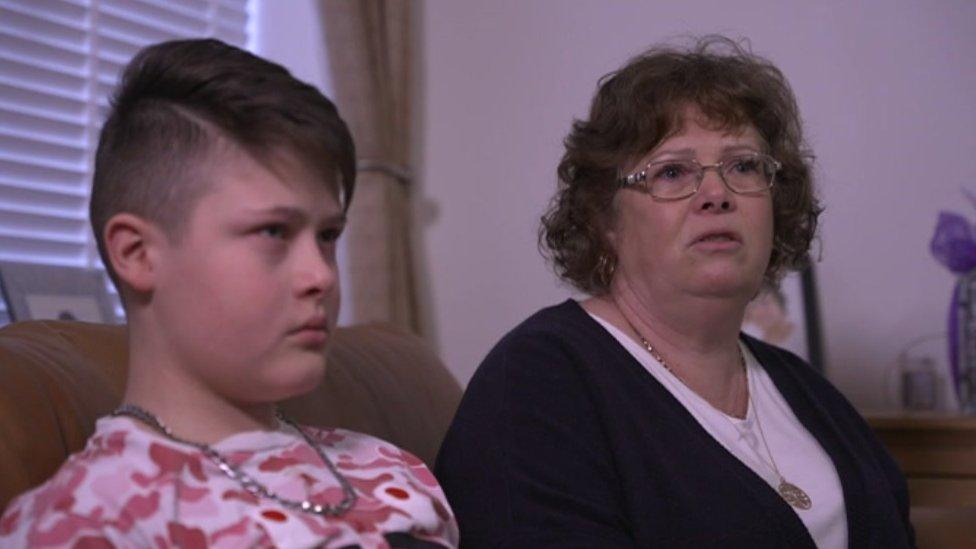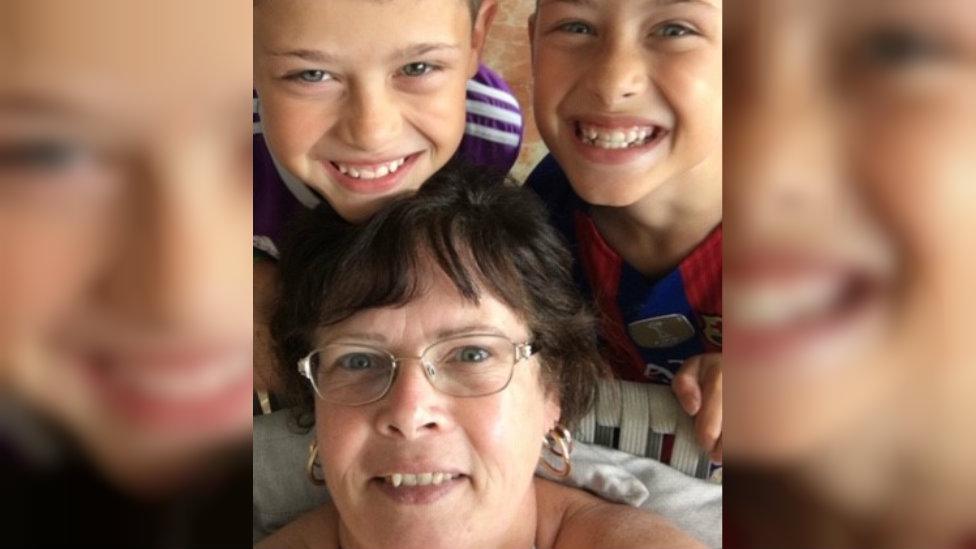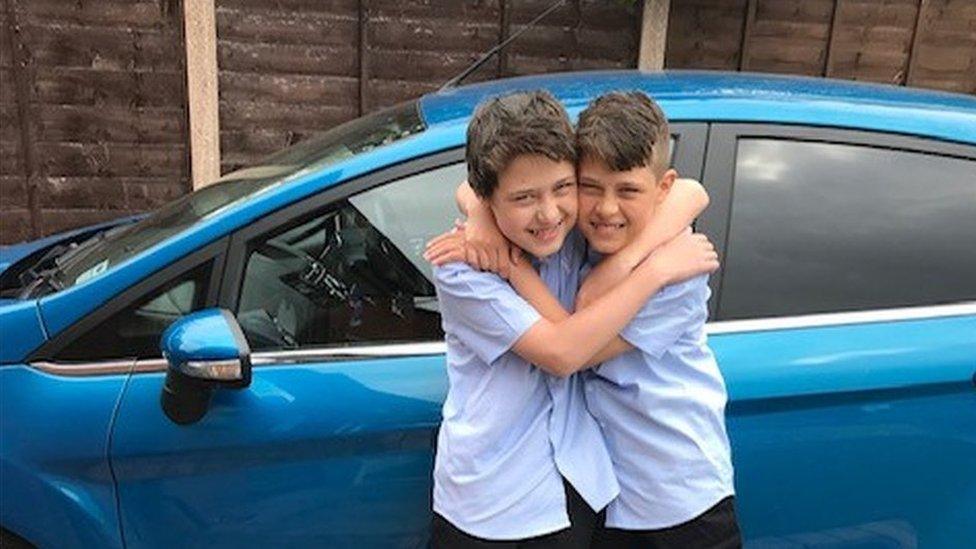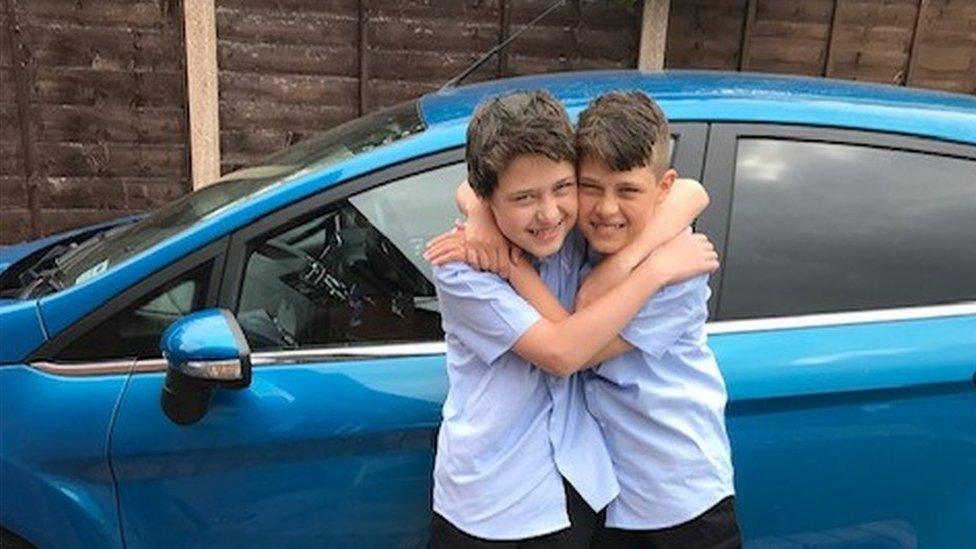Cannock twin's tumour awareness bid after brother's death
- Published

Jack and Julie Parton lost their twin and son Ben in 2019
A teen diagnosed with cancer weeks after losing his twin to a brain tumour said he was committed to raising money and awareness in his memory.
Two weeks after Ben Parton's funeral in 2019, his brother, Jack, was told he had leukaemia.
Despite continuing treatment, Jack and mum Julie, of Cannock, Staffordshire, said they wanted to help support others affected by cancer of the brain.
Jack, 15, has raised money in a silly hat fundraiser and via an online shop.
Ben was diagnosed with a glioblastoma multiforme in April 2019 after suffering symptoms including headaches and sickness.
He underwent treatment including two surgeries and radiotherapy, but died eight months later.

Julie Parton said she "couldn't stop crying" after Jack's diagnosis following Ben's funeral
When Jack first became unwell, his symptoms were first put down to stress at the loss of his brother, but he was diagnosed with leukaemia a few weeks later.
Julie said that after his diagnosis "I just couldn't stop crying, I just thought 'Oh god'.
"Ben and Jack are my only children, I thought 'I can't lose another child'."
Tests have shown Jack is cancer free, but he is having continuing treatment and is on reduced hours at school due to tiredness.
"It has been hard," he said.
The family are encouraging others to fundraise to support further research into brain tumours.
"I started an eBay shop and I named it after my brother... the money I made in November and December I donated," Jack added.

Ben and Jack Parton were best friends, said their mother Julie.
Hugh Adams, head of stakeholder relations at charity Brain Tumour Research, said once a fortnight a child was diagnosed with a brain tumour.
"Brain tumours are comparatively rare. However, they are the biggest cancer killer of children and adults under 40," he said.
"And we are determined at Brain Tumour Research we need to do more about this to understand the disease area more to invest more in research to improve the outcomes, because we can't continue hearing stories like this."
If you've been affected by any of the issues in this story, help and support is available via BBC Action Line

Follow BBC West Midlands on Facebook, external, Twitter, external and Instagram, external. Send your story ideas to: newsonline.westmidlands@bbc.co.uk, external
Related topics
- Published13 December 2022

- Published26 August 2020
